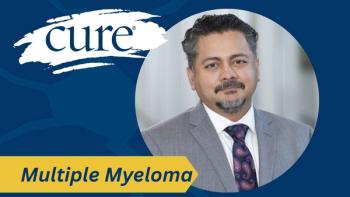
- Summer 2013
- Volume 12
- Issue 2
Robert A. Kyle, MD
Robert Kyle is changing lives through research.
Robert Kyle has been involved in multiple myeloma research for more than 50 years, authoring numerous papers about the disease and participating in a wide variety of clinical studies regarding its causes, diagnosis and treatment. Kyle also consults often with physicians and myeloma patients and is chairman of the Scientific Advisory Board of the California-based International Myeloma Foundation.
Kyle found himself intrigued by multiple myeloma early in his medical career, publishing his first paper about the disease in 1960. "I saw patients with this disease and found it an interesting disorder, one in which one could obtain laboratory quantifications of disease involvement in both the blood and the urine as well as the bone marrow," he observes. "It seemed like a measurable disease in contrast to many others that one sees in internal medicine."
From the beginning, Kyle has been at the forefront of multiple myeloma inquiry. In the 1960s and 1970s, as a member of the Cancer and Leukemia Group B (CALGB), a national clinical research group sponsored by the National Cancer Institute, he was involved in studies of the treatment drug melphalan and demonstrated how the addition of prednisone produced a higher response rate among patients.
In the decades that followed, Kyle became involved with the Eastern Cooperative Oncology Group (ECOG), which investigated the efficacy of various combinations of alkylating agents in the treatment of multiple myeloma. Research into promising drugs, specifically Thalomid (thalidomide), Velcade (bortezomib) and Revlimid (lenalidomide), followed.
I believe that as time goes on, we will understand more about this disease and be able to control it in an early phase.
Still very much involved in clinical research into the causes and treatment of multiple myeloma, Kyle holds much hope for the future. "There are new drugs coming out soon that will supplement [drugs currently in use], and they are going to be more effective," he reports. "I believe that as time goes on, we will understand more about this disease and be able to control it in an early phase."
Articles in this issue
over 12 years ago
Mind Over Mattersover 12 years ago
Silver Linings in Caregivingover 12 years ago
Message From the Editorover 12 years ago
Letters From Readerover 12 years ago
Up All Night?over 12 years ago
Grapefruit Juice: Forbidden Fruit?over 12 years ago
Transcending Cure with Careover 12 years ago
Know Your Optionsover 12 years ago
ASCO Updates


